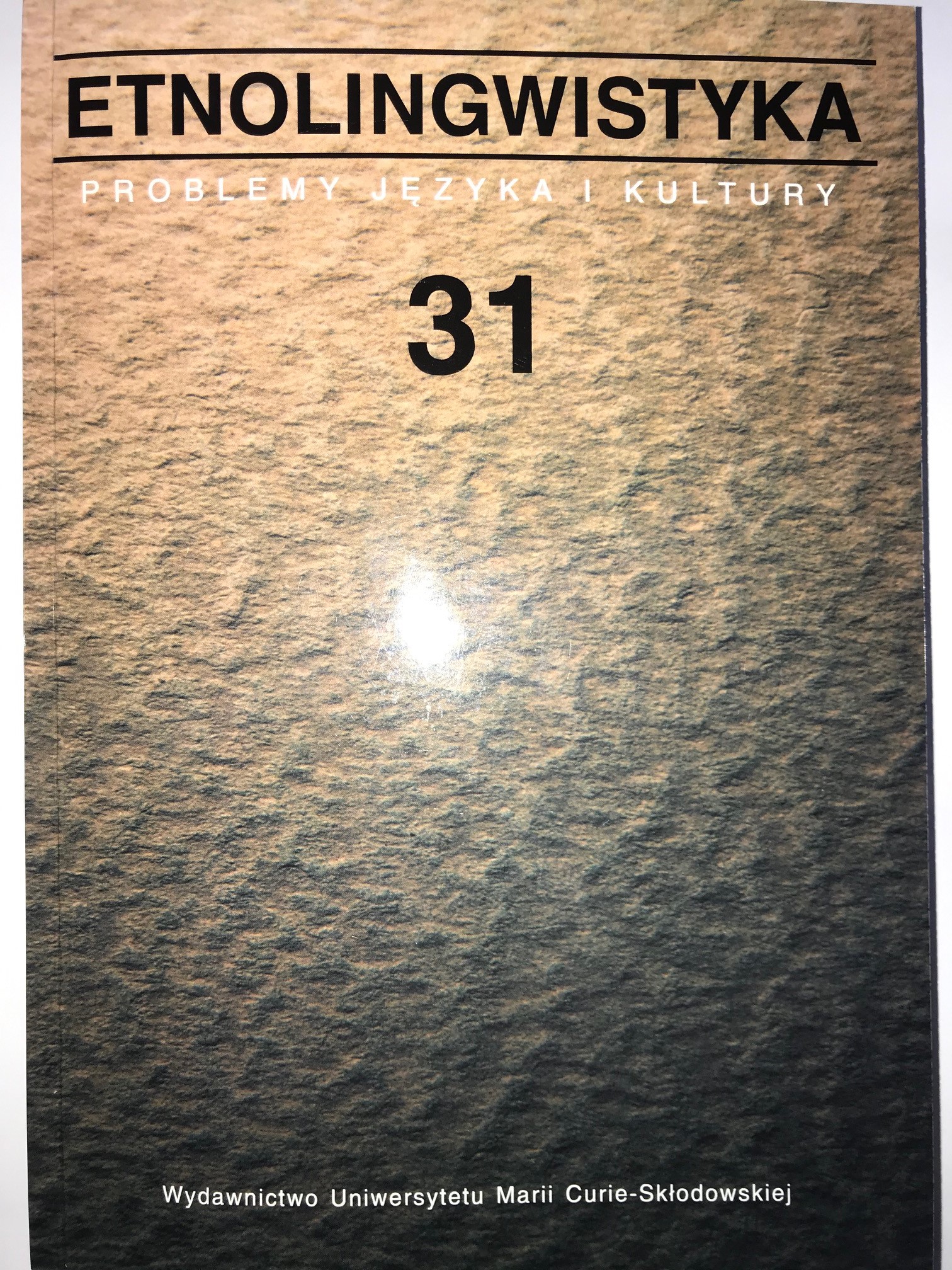Stereotyp warszawiaka we współczesnym języku polskim
The stereotype of warszawiak ‘resident of Warsaw’ in contemporary Polish
Author(s): Laura PolkowskaSubject(s): Cognitive linguistics
Published by: Wydawnictwo Naukowe Uniwersytetu Marii Curie-Sklodowskiej
Keywords: stereotype; linguacultural worldview; warszawiak; questionnaire
Summary/Abstract: The article aims to reconstruct the stereotype of warszawiak ‘resident of Warsaw’ in contemporary Polish. The analysis is based on three kinds of data: systemic, from questionnaires, and textual. Definitions of the lexeme warszawiak are surveyed, beginning with Samuel Linde’s Słownik języka polskiego; this is supplemented with a consideration of the lexeme’s selected derivatives. The main basis of experimental research is the questionnaire conducted in three sections of Warsaw’s student populace. Four questions were asked in the questionnaire: about the features of a typical warszawiak, a true warszawiak, about objects (artifacts) characteristic of the person, and collocations of the adjective warszawski ‘of, relating to Warsaw’. Two textual sources were also used: the National Corpus of Polish (NKJP) and comments to online publications about Warsaw.The stereotype that has been reconstructed appears to be coherent and relatively stable. Especially two features attributed to warszawiacy ‘residents of Warsaw’ are rather resistant to change: conceit (whose basis is one’s location or origin) and artfulness. However, the stereotype also contains new components, mainly neutral ones, such as a rushed lifestyle, modernity, and focus on individual development. The most negative picture of warszawiak is the one that emerges from online comments; the most positive one emerges from responses to the question about the true warszawiak. Within the stereotype there is also internal classification of warszawiacy ‘residents of Warsaw’ with regard to the birthplace and family background.
Journal: Etnolingwistyka. Problemy Języka I Kultury
- Issue Year: 31/2019
- Issue No: 31
- Page Range: 257-276
- Page Count: 20
- Language: Polish

